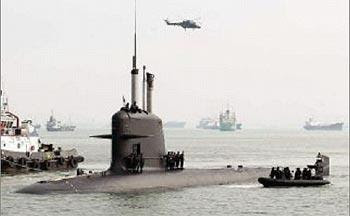Al-Qaeda and Taliban Sanctions Threatened
In early September, the European Court of Justice (ECJ) -- the highest court in the European Union -- ruled that the EU's application of UN sanctions against Yasin Qadi and the al-Barakaat International Foundation infringed their basic rights, and declared the action illegal under EU law. Although the judgment applies only to these two parties, the ruling has far-reaching consequences, for not only the EU but also the entire UN system of targeted sanctions.
ECJ Ruling
The EU imposed sanctions on Qadi, a Saudi businessman, and al-Barakaat, a money remitter in Sweden, when they appeared on the UN Security Council's al-Qaeda/Taliban list in October 2001. Although countries must implement Security Council sanctions, they can choose how to do so. EU member states adopted a regulation that automatically applied sanctions to any individual or entity mentioned by the UN. The sanctions include an assets freeze and severe travel restrictions.
The ECJ overturned a lower court ruling that suggested EU member states had little choice but to handle UN designations in this pro forma manner. The ECJ decided that despite their obligations under the UN Charter, EU members could not adopt a regulation that infringed rights integral to EU law. What most concerned the court was that the listed parties were not informed of their wrongdoing and had no opportunity to put their case before an independent review body.
The court neither questioned the right of the Security Council to impose sanctions, nor asked if such action was appropriate. Furthermore, the court gave the EU three months to address the identified problems before the judgment took effect. But whatever the EU does, the court has issued a major challenge to the use of sanctions as an international counterterrorism tool.
Although Qadi and al-Barakaat remain on the UN list, the twenty-seven EU member states will need to find a new way to implement the sanctions against them -- in a manner that satisfies the court. If they fail to do so, the UN sanctions regime may collapse.
The UN Regime
The Security Council developed targeted sanctions because blanket sanctions had a far greater impact on the population at large than on the decisionmakers whose behavior it hoped to change. Indeed, the al-Qaeda/Taliban sanctions began in 1999 as a way to stop the Taliban supporting al-Qaeda and to encourage them to hand Osama bin Laden over for trial. It was only after the overthrow of the Taliban that the sanctions became the first Security Council regime to target individuals with no connections to a state -- and therefore no voice at the UN.
The Security Council recognized this situation created special problems. In 2006, it devised a system whereby individuals could seek a listing review through a focal point in the UN Secretariat. Since then, the Council has gone further by adopting a resolution this past June that will lead to narrative summaries of the reasons for all listings appearing on its website.
This may not be enough, however, to address all the concerns about the Council's procedures. Although the regime is intended to be preventative, its impact is widely seen as punitive. As such, many argue that it should observe a satisfactory measure of due-process rules. For the ECJ, the key issues are the adequate notification of the listed parties and the provision of effective judicial review.
Security Council Options
The Security Council could do nothing and leave the problem to member states to resolve, but this is probably not the best option. If the Security Council wants to retain targeted sanctions as a tool against terrorism -- or any other threat -- it will need to demonstrate to the rest of the international community that its listing procedures involve as much due process as a domestic court might reasonably expect.
Unfortunately, this is not easy. For instance, although the Council could allow individuals and entities more scope to present their cases, it is impossible to imagine it permitting an independent body to overturn its decisions. Furthermore, the Security Council is an intergovernmental body -- not part of a judicial system -- and any organ that it creates to review its decisions would be regarded similarly. The ECJ clearly expressed its view that no intergovernmental body could carry out an effective review.
A second problem is that much of the information about terrorist groups and individuals is obtained from sensitive sources, and there are few jurisdictions around the world that admit evidence that is not also available to the defendant. If a listing is proposed on the basis of such information, the Council may at present take the assurances of the designating state at face value. In the future, the Security Council will have to consider carefully whether it is worth including a name on the list if it causes states to run the risk of a successful legal challenge. This may lead to the list containing the names of only well-known supporters of al-Qaeda and the Taliban, thereby losing some of its preventative function.
Preserving Targeted Sanctions
The best way forward would be for each Council member, particularly those most likely to face legal challenges, to ensure that every listing meets the standards expected by its domestic courts. The United States already does this by taking proposed listings through a long and detailed examination to ensure that any domestic legal challenge would be likely to fail. The record of success so far suggests that this system works. Other members of the Council may not have access to as much information, but if they are uncertain whether their courts would challenge the case, they can always ask for more information or refuse the listing. The al-Qaeda/Taliban list will never be exhaustive, and even if it becomes more limited, it can still reflect the main components of the terrorist threat and continue its symbolic value as an expression of international condemnation.
Concerns about notification will be largely solved when the reasons for listing appear routinely on the UN website. Coupled with this, states can inform newly listed individuals and entities of the sanctions, and inform them of the ramifications. Listed parties can then approach national or regional courts, like the ECJ, to ask for a review of the case against them, and the courts can make a decision on the basis of the supplied information.
The debate about the fairness of Council procedures will likely continue, but if challenges regularly fail, overall confidence in the regime will grow. This will lead not only to more-effective implementation, but also to more enthusiastic engagement; it will revive the sanctions regime and reinvigorate international action against terrorism. There may be an argument for the Council to improve its procedures, but improvement need not involve a fundamental revision of its critically important role in global counterterrorism.
Authored by Richard Barrett. He is the coordinator of the UN's al-Qaeda/Taliban Monitoring Team.


Comments